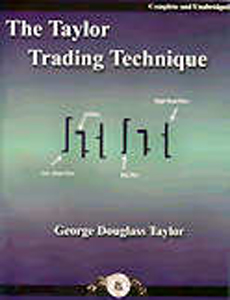Inflation
Further Reading
The term inflation, also known as the Consumer Price Inflation (CPI) refers to the rise in the price level of goods and services which mean the consumers will have to spend more money to buy the same amount of goods or services. Inflation is one of those factors that reduces the buying power of the customers and is considered as a “true enemy” for the investors because of its negative influence over the market. Market forces as well as the Government policies usually play a key role in the rise and decline of inflation in a country.
What Causes Inflation?
In general, it is assumed by the economists that high rate of inflation is the outcome of excessive growth of money supply. However, different theories are available regarding the low and medium level inflations. Some of the key reasons (assumed by the economists) behind the moderate and low level inflation includes: growth in money supply, fluctuations in the market in the real demand for goods and services and scarcity of raw materials that are needed to produce goods and services. However, the general concept regarding the growth of inflation is that it occurs due to the faster rate of money supply in comparison with the rate of economic growth.
Inflation: An Old Enemy of Human Civilisation
The concept of inflation has a long history in the human civilisation. One of the most significant developments regarding inflation is the one that took place in Western Europe in between the 15th and 17th century. During this period of time, Western Europe experienced a serious inflationary cycle which was termed as “price revolution” where the prices continued to raise perhaps sixfolds over a 150 year period.
It was believed that the increased wealth of Habsburg Spain, which managed to gain access to a huge amount of gold and silver through expeditions to the New World, was the main reason behind the inflation. The spent silver spread throughout Europe- a region that mainly depended on cash before that and caused a major inflation. The demographic factors are also needed to be taken under consideration where the population in Europe moved upwards putting more pressure on prices following the depopulation caused by the infamous “Black Death”.
The Modern Day Concepts
The modern day economists favor a low and steady inflation rate which may offset the severity of economic recessions as the labor market gets sufficient time to adjust itself in a downturn and at the same time helps the economy to reduce the risk of falling for “liquidity traps” which can make it more difficult for a Government to implement monitory policy in the country to stabilise the national economy. Usually the central bank plays the main role in keeping a low and stable inflation rate in a country through implementing various policies.
Calculating Inflation
Inflation is usually determined through the calculation of the inflation rate of Consumer Price Index. It is to be mentioned that this index considers the prices of a certain group of goods and services that are purchased by the “typical consumers”. The percentage of change in the price index over a certain period of time is termed as inflation rate.
To have a better understanding, let’s take an imaginary scenario to calculate the inflation of a country. Say for example, country ABC had a Consumer Price Index of 195.16 during January 2008 which moved to 201.45 in January 2009. Now the annual percentage rate inflation in the Customer Price Index over the course of year 2008 is going to be:
(201.45 - 195.16 / 195.16) * 100 = 3.22%
So from our calculation, we can conclude that the inflation rate for Consumer Price Index remained at 3.22% during this one year period for country ABC which means the consumers of that country had to pay about three percent more for goods and services during the year 2008 as far as the general level of prices are taken under consideration.
Inflation and its Impact over Investors: A Brief Scenario
Inflation is a vital factor for the investors as far as considering the company where they are investing their money. This is mainly because inflation has impact over the buying power of people and therefore a high inflation rate can cause drop of sales of certain products or services offered by a company.
Say for example, ABC is a company that produces “Y” product for the Australian market and is enlisted in ASX. Now let’s assume that an unexpected rise in inflation rate takes place in the Australian economy and the company now needs to pay more for the raw materials, pushing the cost of production to a higher level. In order to cover that additional cost, the company may need to increase the price of its products. Now the increased price can reduce the demand for its products in the market which may reduce the profit margin for ABC. This is not a good sign for the company and can easily cause downfall for its share price at ASX which will have impacts over the profitability of the shareholders who owns the ABC shares. So this is how the rise of inflation can affect the investors and reduce their profitability.
Inflation and the Australian Economy
As far as the Reserve Bank of Australia (RBA) is taken under consideration, the primary target is to keep the inflation within the range of 2 to 3 percent. Although this may sound reasonable over a limited period of time, but in the long run the overall economy may experience devastating effects of this increase. Just consider the increase in Consumer Price Index of Australia for 40 years till December 31st 2007. You will see that the CPI has increased to 160.1 from 15.8 within this period which means the Australian Dollar has lost as much as 90 percent of its purchasing power.
Positive and Negative Impacts of Inflation
Inflation has both positive and negative impacts over the economy of a country. The positive impacts may include a mitigation of economic recessions as well as debt relief which can be executed by reducing the real debt level. While on the other hand, it can negatively impact the overall economy of a country by decreasing the real value of money along with the value of other monetary items as well as can discourage investments in the economy due to the uncertainty regarding inflation for the long run. Inflation can lead towards the shortage of goods as well as the consumers can start hoarding certain goods out of concern that the price of those goods may rise in the future.
Glossary List- How to Trade Forex and Gold Options
- How to Trade the Gold Price and Profit!
- Forex Trading the EUR/USD Pair € EURO and $ US Dollar
- How to Trade Stock Market Indices S&P500
- How to Trade Crude Oil
- Forex Trading Psychology
- What Are Broker Recommendations?
- Free Tickets to Trading & Investing Seminar & Expo ($18) Brisbane 2013
- Stock Calc App
- All About Warrants
- Introduction to Exchange Traded Funds
- Introduction to Exchange Traded Funds: Features
- Introduction to Exchange Traded Funds: Domestic ETFs
- Introduction to Exchange Traded Funds: International ETFs
- Exchange Traded Commodities
- Australian Stock Scan
- Australian Online Share Trading
- List of Trading Books
- Interesting Thoughts about the Australian Dollar
- What's the Meaning of Hawkish?
- Do You Know How To Use the P/E Ratio
- Trading, Religion and Politics - Do They Have Anything in Common?
- Shares that are Volatile that Double and Half in the Short Term
- Telstra (TLS) T3
- Margin Call by E-mail
- The Cost of Holding a Position
- Lack of Disclosure: Compensation from ASX Listed Company
- Unrealistic Returns and Benchmarks
- CMC Markets Down
- Quality versus Quantity Forex Trading
- Woolworths 1H Sales $30.7bn up 3.2%
Date added 31-01-2013 - ASIC Fines CommBank's CommSec
Date added 25-09-2012 - Industry Super Network Calls to Ban High Frequency Trading (HFT)
Date added 22-09-2012 - NAB Launches Online Share Trading Platform
Date added 19-09-2012 - Reserve Bank of Australia Says 23 Countries Holding AUD
Date added 18-09-2012 - Australia Post Digital Mailbox
Date added 10-09-2012 - Winners and Losers of Trading for Week 2
Date added 16-01-2012 - 2012's First Week of the Best and Worst Traded Stocks
Date added 09-01-2012 - 2011's Last Best and Worst Traded Stocks
Date added 05-01-2012 - Best and Worst Pre-Christmas Traded Stocks
Date added 30-12-2011 - Trading Winners and Losers for Dec. 12-16
Date added 19-12-2011 - Best and Worst Traded Stocks for Dec. 5-9
Date added 13-12-2011 - Top 3 Best and Worst Traded Stocks
Date added 05-12-2011 - ASX Glitch Trading Halt
Date added 27-10-2011 - Worst Trade Stocks (and the Best)
Date added 06-08-2011
Top 150 Public Companies Listed on the Australian Stockmarket as at 29/05/2009
- BHP Billiton
- Westpac Banking Corporation (WBC)
- Commonwealth Bank of Australia (CBA)
- National Australia Bank (NAB)
- Telstra (TLS)
- ANZ
- News Corporation (NWS)
- Woolworths Limited(WOW)
- Woodside Petroleum Limited (WPL)
- Rio Tinto
- Westfield Group (WDC)
- Westfarmers Limited (WES)
- QBE Insurance
- CSL
- Newcrest Mining Limited (NCM)
- Origin Energy Limited (ORG)
- Santos Limited (STO)
- AMP Limited (AMP)
- Macquarie Group (MQG)
- Foster’s Group Limited (FGL)




